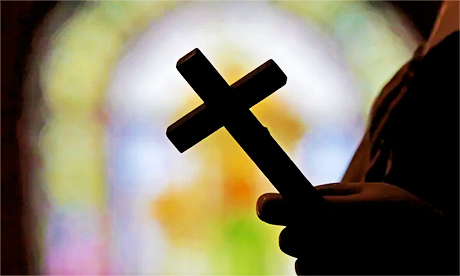“Have we, the leaders, been able to hear their suffering?”
Bishop Marc Stenger of Troyes in north-central France expressed his doubts on Twitter shortly after two priests in other dioceses within the country took their own lives on August 21 and 23.
These were two very different situations.
In the first case, Father Jacques Amouzou of the Diocese of Langres had been accused, two years earlier, of inappropriate behaviour with a woman who was going to him for spiritual direction.
In the other case, Father Thierry Min of the Diocese of Metz, was a dynamic 50-year-old.
Bishop Stenger, who knew him well, said the priest was “very sociable, but felt too lonely where he was”.
The fellow priests with whom he had gone hiking in July said they hadn’t perceived anything which would have foreshadowed such a tragedy.
There are many reasons why priests fall into depression or malaise, including overwork, spiritual dryness and the disconnect between their idealistic view of the priesthood and daily reality.
Priests often suffer from feeling unappreciated, experience intimacy difficulties linked to celibacy and are afflicted by the negative image that sexual scandals have given to the priesthood.
No matter what the cause, most priests tend to deal with their unhappiness through silence and isolation. And this is sometimes deadly.
Powerless witnesses
“It gnawed at me, I shut myself off,” says Father Raymond, a priest from Monts du Lyonnais who experienced burnout in 2015.
“I had a very friendly relationship with my parishioners, many of whom simply called me ‘Raymond,’ but I realized that they were not close friends. I felt more attuned to their problems than the other way around,” he says.
The same goes for another priest, who went through a serious illness in 2016 and now feels that “the trap for a priest is to give more than he receives”.
It is difficult to know whether this is due to the attitude of the laity, the position of the priest in general or the temperament of a few.
“I tried to help him, but he had a strong personality and didn’t like to be taken care of,” says Marie (not her real name), who a few years ago was the “helpless” witness of a long crisis in her parish priest’s life in eastern France.
“I pointed out to him that he was drowning in work, but only as a joke, because it wasn’t my job to give him instructions,” explains the 72-year-old former parish secretary.
Later, when the priest in question went to rest for several months, Marie updated the community on news about him, but always “while remaining vague”.
This importance attached to “discretion” still holds true in the Church of France, as evidenced by the difficulty of gathering information on these delicate issues.
“Making public his discomfort is not the best way to help a priest get back on his feet,” argues Father René Pennetier, who counsels priests in the Diocese of Nantes.
“When it’s a question of depression, we’ll talk about fatigue, to remain prudent,” he says. Continue reading
Additional readingNews category: Analysis and Comment.




